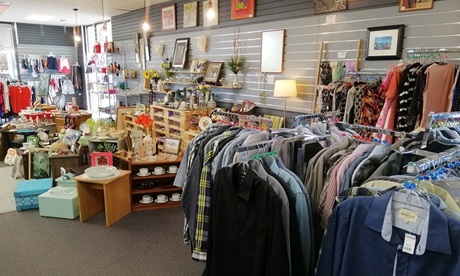Unwanted clothing is one of New Zealand’s fastest-growing waste scandals but local action can make a difference.
Every year, Waipā residents send the equivalent of 16 shipping containers full of clothes to landfills.
However, the Council’s Waste Minimisation advisor Shelley Wilson says op shop bus tours offer punters the chance to check out some outlets they’ve never visited before – while reducing their environmental footprint and saving money.
A resident who went on a tour last year says it was a great day out and she picked up “second hand gems” and valuable tips from experts along the way.
Since then, she says she’s been “inspired to do laundry and mending for a local op shop, which helps put funds back into the community”.
Men also enjoy the fun as – like women – they also like collectable and vintage objects plus good-value clothes.
“In our teens we thought it was cool to dress from the Army Surplus stores and op shops – that hasn’t changed” one says.
”I like jackets and am always on the hunt for a bargain.
“Eight of my 11 jackets are second-hand and I have two coats, one second-hand.
“Jeans are also good to hunt for, especially deals on Levis.
“In the vintage field, my treasures include a Levi shirt for $5 and a 1968 tie from a Kings Road, Chelsea, London fashion store owned by The Beatles for 50c.” (sic)
Mounting clothes’ mountains
Textiles from unwanted clothing are mounting enormously. To combat the dumping of clothes, the Council’s “Slow Fashion September” contribution includes promoting sustainable fashion and offering free courses where people can get advice about how to curate a low-waste, low-cost wardrobe or take part in a sewing repair workshop.
Fast fashion impacts not only the environment but has created concerning consumer behaviour with alarming global statistics, says Wilson.
Globally:
- one in three women consider a garment “old” after one wear
- on average 80% of the items in our wardrobes are never worn
- the fashion industry is responsible for 40 million tonnes of textile items going to waste each year
“It’s important we all do our part, even if it’s just adding one or two new practices into our daily routines” Wilson says.
“These changes may seem small, but the collective impact is huge for our community and for passing sustainable behaviour to our kids.”
Source
